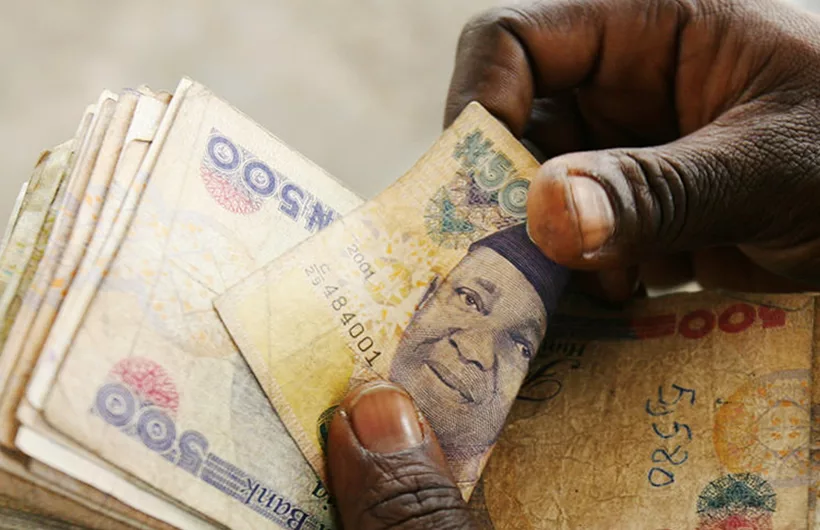As Nigeria approaches the festive season, a distressing scenario is unfolding that threatens to derail the hopes and expectations of millions of citizens.
The ongoing cash crunch, characterised by severe withdrawal limitations and systemic banking constraints, is more than just an inconvenience – it is a potential economic catastrophe that demands immediate and decisive intervention.
The current cash shortage is a multifaceted problem that exposes the fragility of Nigeria’s financial infrastructure. Banks are rationing cash, with withdrawal limits plummeting to as low as N5,000 to N10,000 across over-the-counter and ATM transactions.
RELATED: Banks Aiding Currency Hawking Risk N150m Fine – CBN
This limitation comes at the worst possible time, when Nigerians traditionally require more liquidity for holiday expenses, family gatherings, and end-of-year economic activities.
The root causes are as complex as they are concerning. The Central Bank of Nigeria (CBN) appears caught in a perfect storm of challenges: limited cash supply, declining customer deposits, and an apparent disconnect between regulatory directives and actual banking practices.
The Association of Senior Staff of Banks, Insurance, and Financial Institutions has pointedly blamed the CBN’s inability to meet commercial banks’ cash demands, creating a systemic bottleneck that ripples through the entire financial ecosystem.
In our opinion, what makes this situation particularly alarming is its potential for broader economic disruption. Consumer spending, especially during the Yuletide season, is a critical economic driver. By constraining citizens’ access to their own funds, the current cash crunch threatens not just individual financial planning but the broader economic momentum.
The House of Representatives has rightly highlighted this, drawing attention to how such cash scarcity impedes economic growth and business investment.
The situation uncomfortably echoes the traumatic cash scarcity surrounding the 2023 general election – a period marked by significant social upheaval and, tragically, loss of life. Nigerians are justifiably apprehensive, having witnessed firsthand the devastating consequences of financial mismanagement. The memory of that period lingers, creating an additional layer of anxiety around the current cash shortage.
The emergence of exploitative parallel markets adds another dimension to this crisis. Point of Sale (PoS) operators selling cash at exorbitant rates represent a systemic failure that goes beyond mere inconvenience.
This practice circumvents formal banking protocols and essentially punishes the very citizens the financial system should serve. It creates a predatory ecosystem where access to one’s own money becomes a commodity to be bought and sold at inflated prices.
The Human Rights Writers Association of Nigeria’s characterisation of this situation as evidence of a “collapsing economy” might seem harsh, but it captures the genuine frustration and economic anxiety permeating the nation.
When citizens cannot access their own funds during a traditionally important economic period, it signals a profound dysfunction in the financial system.
The CBN’s recent directives ring hollow against the backdrop of persistent cash shortages. While the bank has promised to intensify oversight and ensure efficient cash disbursement, the reality on the ground tells a different story. Banks continue to struggle with limited cash supplies, and customers are left battling unprecedented withdrawal restrictions.
The economic implications extend far beyond immediate inconvenience. Small businesses, which form the backbone of Nigeria’s economic landscape, are particularly vulnerable. Holiday season sales, typically a crucial revenue period, are at risk of significant disruption.
Traders, artisans, and small-scale entrepreneurs who rely on cash transactions find themselves in an increasingly precarious position.
What makes this crisis particularly frustrating is its seemingly preventable nature. Nigeria is not a cash-poor country; rather, it suffers from a distribution problem. The disconnect between available resources and their accessibility highlights deeper structural issues within the nation’s financial ecosystem. It speaks to a systemic challenge that goes beyond any single institution or policy.
Sadly, the timing could not be more unfortunate. The Yuletide season is traditionally a period of economic activity, family reunions, and celebration. Instead, Nigerians find themselves wrestling with a financial system that seems more focused on creating obstacles than facilitating economic movement.
The psychological toll of this cash crunch cannot be understated – it breeds frustration, erodes trust in financial institutions, and undermines the very economic confidence that drives growth.
As we approach the critical holiday period, the CBN must move beyond bureaucratic explanations and take concrete, immediate actions. The bank needs to dramatically increase cash supply to commercial banks, enforce strict compliance with cash disbursement directives, investigate the exploitative PoS cash-selling market, and provide transparent, real-time communication about cash flow strategies.
While technological solutions like digital banking offer alternatives, they cannot entirely replace cash, especially in a country with significant unbanked populations and varied technological access.
The solution requires a holistic approach that considers the diverse economic realities of Nigerian citizens.
The cash crunch is more than a technical banking issue. It is a test of governance, economic management, and institutional responsiveness. Nigerians do not want excuses. They demand a functional, responsive banking system that facilitates, rather than hinders, their economic activities.
The CBN has a critical opportunity to restore faith in Nigeria’s financial infrastructure – an opportunity it must not squander. The resilience of the Nigerian people is legendary, but even that resilience has its limits.
